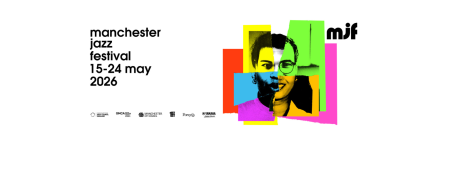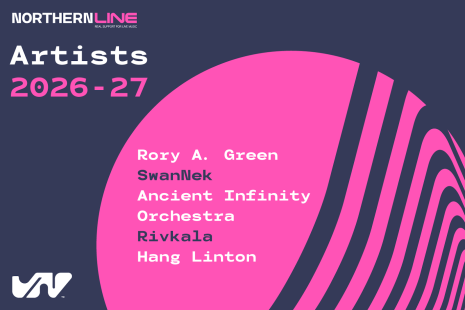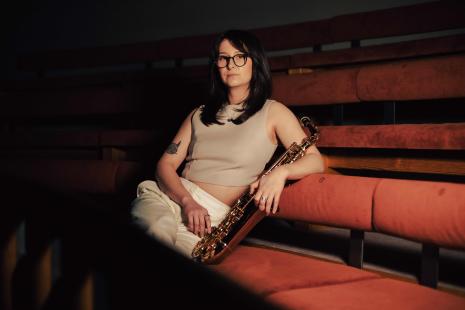

The year 2025 is of significant importance to the Italian jazz world, presenting a series of challenges for Angelo Valori, the newly elected president of I-Jazz Association. Immediate objectives and long-term strategies are keywords for him of the utmost importance, challenges that require vision and concreteness. They are the guidelines that Angelo Valori has selected for his new "adventure" in support of Italian jazz.
Let’s start from the present, from the two keywords that Angelo Valori, president of I-Jazz Association, has chosen for 2025.
For 2025 I have chosen "inclusion" and "innovation", two aspects that might seem to be opposite, but are both very important for the future of jazz. Innovation, which is closely related to our music and artistic research, is necessary because it allows us to imagine and build the future. Inclusion is essential because Italian jazz, today more than ever, must strengthen the connections between the public, musicians, organizers, and institutions. This will expand and enhance an increasingly inclusive scene, increasing also networks and environmental sustainability.
And looking at the big picture: what do you think is the most urgent challenge for Italian jazz today?
The most important challenge is to renew and expand our audience without losing the quality of jazz language. I think of jazz as a many-sided and diverse style. Jazz needs to leave its traditional spaces and find new opportunities, connecting with new languages and audiences. It's crucial to get younger people involved so that jazz isn't seen as a "niche" genre.
What are your expectations and first objectives for the Adrimusic production center, which is one of your recent projects as a protagonist?
Adrimusic was created to establish a new and productive space in the contemporary languages field, especially jazz and songwriting. This space is supposed to involve artists of international value as well as young local artists, with a strong focus on gender balance. Adrimusic is a place where artists can be creative, experiment new things, and work together. I'm especially proud of the success of our productions, like the collaboration of the Medit Orchestra with amazing musicians like Manhattan Transfer, Dee Dee Bridgewater, Take 6, Fabrizio Bosso, Sergio Cammariere, Maria Pia De Vito, Ada Montellanico, Rita Marcotulli, Morgan, Karima, Serena Brancale, and Avion Travel. All this has been achieved in just three years, and during that time, many young people from our area, especially women, have had the chance to work with these incredible, stratospheric musicians. Another great thing is that we're sponsoring the Premio Tenco, which is a huge honor for us.
What does it mean to do research and innovation in the field of music today in Italy, and in the jazz field in particular?
For me, research today means going beyond the conventions, exploring other languages, and continuing to search for what's different. It means focusing on how local and global languages interact, from a multidisciplinary perspective. It also means discovering new ways to make music and working better with technology. This has led to more creative and distributive opportunities, but it also requires a new way of thinking. In my opinion, innovation does not necessarily mean creating a difficult language that is only for musicians.
In your artistic projects you have always found room for classical music, popular repertoire and jazz: what is the thread that keeps them linked in the 'musical world' of Angelo Valori?
I have a classical training, but I'm always curious and dedicated to the contemporary. Many types of music have influenced me, each in its own way and mode of reaching us, the audience. I've always been a big fan of jazz because of its spirit of freedom and its ability to create dialogue with other cultures, which often is also the case with contemporary popular music.
Two masters that you miss today.
Ennio Morricone and Aldo Clementi are two very different musicians who were both students of Goffredo Petrassi. Morricone is an example of the misunderstanding that can be created between the academic world and the recognition of innovation and artistic quality. Aldo Clementi, of whom I was a student, taught me the ethical value of being a musician. For him, the most important thing for an artist is to choose, without giving in to the many temptations that can distract us on our path.
What would you suggest to a young musician short of inspiration?
I always tell my students to study and work hard and not to give up when things get difficult. We have a great model in our background that values talent and inspiration, but we should also focus more on the fact that in artistic activities, constant, steady work and practice are essential.



